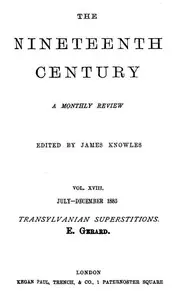"The Psychology of Arithmetic" by Edward L. Thorndike is a scientific publication written in the early 20th century. This work delves into the psychological principles that underpin the teaching and understanding of arithmetic in elementary education, aiming to enhance educational practices through psychological insights. The text appears to focus on effectively measuring and improving students' arithmetical skills and reasoning through a structured approach based on empirical research. The opening of the book introduces key concepts in educational psychology, specifically related to the teaching of arithmetic, highlighting the need for a deeper understanding of the processes involved in learning arithmetic skills. Thorndike outlines the significant progress made in psychology regarding learning and habit formation, emphasizing the formation of connections between various arithmetic concepts and the importance of practice in developing these skills. He illustrates how a clearer definition of the functions of arithmetic education can lead to improved instructional methods, addressing issues such as the meanings of numbers, problem-solving, and the vital role language plays in mathematical understanding. (This is an automatically generated summary.)

The Psychology of Arithmetic
By Edward L. (Edward Lee) Thorndike
"The Psychology of Arithmetic" by Edward L. Thorndike is a scientific publication written in the early 20th century. This work delves into the psychol...
Genres
Released
2012-03-29
Formats
epub
mobi
mobi (images)
epub (images)
epub3 (images)
Free Download
Overview
About the Author
Edward Lee Thorndike was an American psychologist who spent nearly his entire career at Teachers College, Columbia University. His work on comparative psychology and the learning process led to his "theory of connectionism" and helped lay the scientific foundation for educational psychology. He also worked on solving industrial problems, such as employee exams and testing.
Total Reviews
10.0k
Total reviews from Goodreads may change














